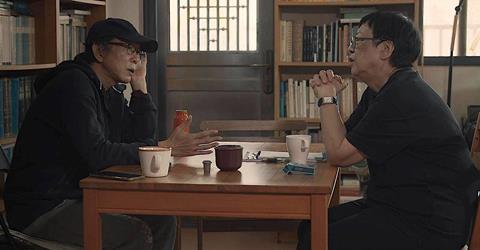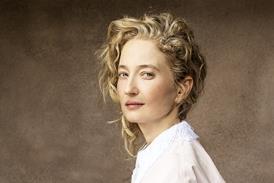Filmmaker Ann Hui takes a personal look at Hong Kong’s poetry scene

Dir: Ann Hui. Hong Kong/China. 2023. 102mins
“During the most difficult times of my life,” says the filmmaker Ann Hui, who appears in her own documentary as an interviewer and, in one scene, an interviewee, “it was the poetry that I learned in my school days that saved me. I find consolation in poetry.” This intimate examination of the contemporary Hong Kong poetry scene is a deeply personal work for the director, a long-cherished passion project that came to fruition during the space and uncertainty of the Covid-19 period.
A niche proposition – although certainly one made with a great deal of love
Focusing on and contrasting two key literary voices, Huang Can-ran and Liu Wai-tong, the film is composed of relaxed conversations between the director and her subjects, cut together with poems accompanied by atmospheric shots of Hong Kong life. A film that focuses on a literary legacy and Hong Kong’s past, while rather sidestepping the social and artistic realities of Hong Kong’s present, it’s a niche proposition – although certainly one made with a great deal of love.
Hui’s name and considerable reputation will be the film’s main selling point – the film screens in Busan having premiered in the opening slot of the Hong Kong Film Festival. A key figure in the Hong Kong New Wave, she is a regular on the festival circuit and has premiered fiction feature films in competition in Berlin (Ordinary Heroes, Summer Snow), Venice (A Simple Life) and San Sebastian (Visible Secret), among numerous others. She was awarded a career Golden Lion at the 2020 Venice Film Festival. In contrast to her more box-office-friendly fiction work, this picture may prove to be a tough sell outside of a bookish subset of the domestic audience. As Hui herself says, “This is not a mainstream movie.” It will no doubt be of interest to existing Hong Kong poetry fans, but it may be a little too specific in its focus to win many new ones.
That’s not to say that the poetry showcased by the film is obtuse or inaccessible. “We should not try to make poetry obscure to be safe,” says Wai Yeun, whose playful musings on the mundane are sometimes unrecognisable as poetry to the untutored eye. He gives an example of a poem based on a real-life experience: a cockroach landed on the television just at the moment when he was about to pluck an errant nose hair. “That’s a poem?” protested his wife.
Subjects for verses included in the film by other writers also include the North Port Vehicle Ferry, and a late-night bus journey along Hong Kong Island’s Causeway Bay. The topography of the city – its drama, the contrast of the reaching skyscrapers and the lush mountain backdrop, the clutter of the street markets – all feeds into the words of the poets.
But interestingly, neither of the film’s two main subjects of the film still live in the city. Huang Can-ran, who now resides in mainland China, claims he was forced out of his home city by the rising cost of living. Poet and photographer Liu Wai-tong’s reasons for leaving Hong Kong for Taipei are – tactfully perhaps – not articulated in the film. And this, perhaps, is what’s missing from this warm, but slightly meandering saunter in the company of Hong Kong’s writers. We get a sense of the city as a muse, but little acknowledgement of the realities of artistic freedom in contemporary Hong Kong.
Production company: Pica Pica Media Company
International sales: Golden Scene Company Limited Felix@goldenscene.com
Producer: Ken Hui
Cinematography: Mak Chi Kwan Mike
Editing: Salt & Vinegar
Music: Olivier Cong
























